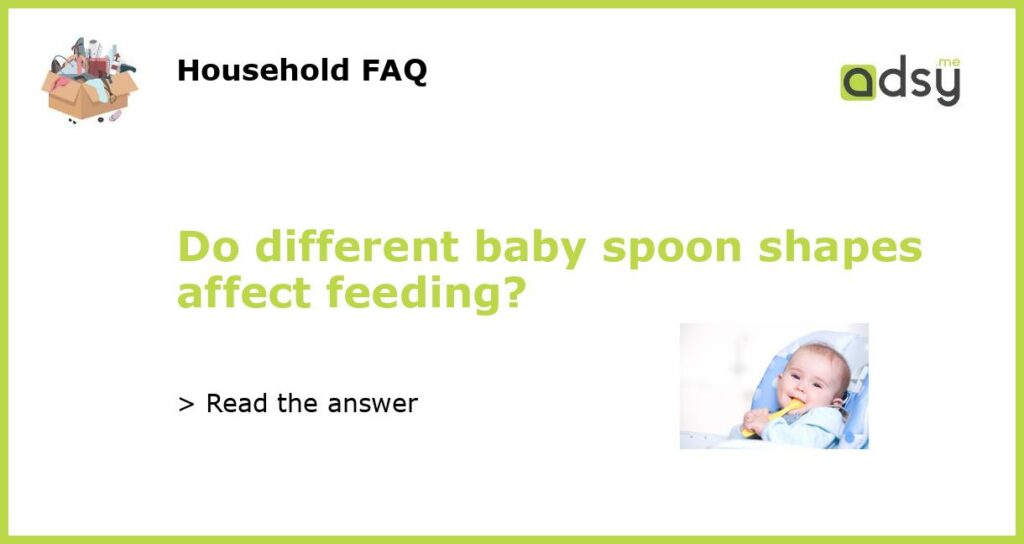Feeding a baby can be a tricky task, especially for new parents. One common question that arises is whether different spoon shapes have an impact on feeding. Some parents prefer using silicone spoons, while others prefer metal spoons. In this article, we explore the impact of different baby spoon shapes on feeding and whether it makes a difference.
Shape and Material of Baby Spoons
When it comes to baby spoons, there are various shapes available in the market. Some of the most common baby spoon shapes include the traditional oval shape, shallow dish shape, and flat shape. Apart from the shape, baby spoons are also made of different materials such as metal, silicone, and plastic.
Impact of Spoon Shape on Feeding
While there is no conclusive evidence to prove that spoon shape affects feeding, certain spoon shapes can make the feeding process more comfortable for the baby. For example, shallow dish-shaped spoons can reduce the amount of food that overflows from the spoon, making it easier for the baby to feed. Additionally, flat spoons can be useful for babies who are learning to self-feed as it allows them to scoop food more easily.
Material of Baby Spoons
Baby spoons are made of various materials, and each material has its advantages and disadvantages. For instance, metal spoons are durable and easy to clean but may be too hard on the baby’s gums. Silicone spoons, on the other hand, are gentle on the gums and are easy to use but may not be as durable as metal spoons. It’s important to consider the material of the spoon when selecting a spoon for your baby.
In conclusion, the shape and material of baby spoons may have an impact on feeding, but there is no conclusive evidence to prove so. Ultimately, the choice of baby spoon will depend on personal preference and the baby’s comfort. It’s important to select a spoon that is easy to use, gentle on the baby’s gums, and makes feeding a comfortable experience for both the baby and the parent.






